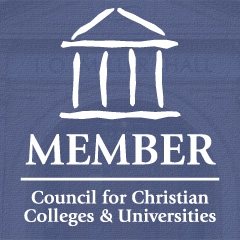I’ve been involved with Christian higher education for a long time; I’m beginning my 27th year of teaching next month. I can’t imagine trying to do what I do in the classroom in any other setting than a Christian college or university committed to upholding Biblical standards.
 The primary organization that acts as an umbrella for these Christian educational institutions is the Council for Christian Colleges and Universities (CCCU). All Christian colleges that are part of this organization are supposed to maintain a basic fidelity to the essential teachings of Scripture regarding Christian faith, committed to a high view of Biblical authority.
The primary organization that acts as an umbrella for these Christian educational institutions is the Council for Christian Colleges and Universities (CCCU). All Christian colleges that are part of this organization are supposed to maintain a basic fidelity to the essential teachings of Scripture regarding Christian faith, committed to a high view of Biblical authority.
Now, two of those institutions, Goshen College in Indiana and Eastern Mennonite University in Virginia, have decided, in the wake of the Supreme Court decision on same-sex marriage, to alter their view of Biblical marriage. Both are now allowing same-sex married couples to be on the faculty.
This is a radical departure from Christian orthodoxy. One would assume these institutions would immediately be suspended from the CCCU, yet the official statement from its board of directors is that they will continue deliberations.
What is there to deliberate?
The rationale for suspending judgment on the matter is that all member colleges and universities will be contacted and consulted first. I am trying to give the benefit of the doubt here, but if an organization that says it is committed to Biblical authority cannot emphatically declare from the outset that what these two institutions have done is clearly unbiblical, one must be excused for having doubts about that commitment.
The CCCU may come to the correct conclusion after all its consultations and deliberations. Goshen and Eastern Mennonite may no longer be part of the organization as a result. Yet I cannot help but be dismayed by the slow nature of decisionmaking on a subject that should not be a matter of debate.
 I’ve had my concerns about Christian higher education all along, primarily the willingness on the part of some of these institutions to show a Christian face to prospective students and their parents, while allowing some of their faculty to teach on the fringes on genuine Christianity—and in some cases to hold forth blatantly unbiblical positions.
I’ve had my concerns about Christian higher education all along, primarily the willingness on the part of some of these institutions to show a Christian face to prospective students and their parents, while allowing some of their faculty to teach on the fringes on genuine Christianity—and in some cases to hold forth blatantly unbiblical positions.
Do I have a problem with academic freedom? Not at all. I want to be able to teach what I believe to be Biblical without undue scrutiny. But there is a limit when you agree to a statement of faith before being hired. If you then teach contrary to that statement of faith, you have demonstrated infidelity and a distinct lack of integrity.
Christian education needs to be uniquely Christian. We are here to serve the Lord and help lead our students into a Biblical worldview. If we do anything less than that, we are unfaithful to the One who called us.
